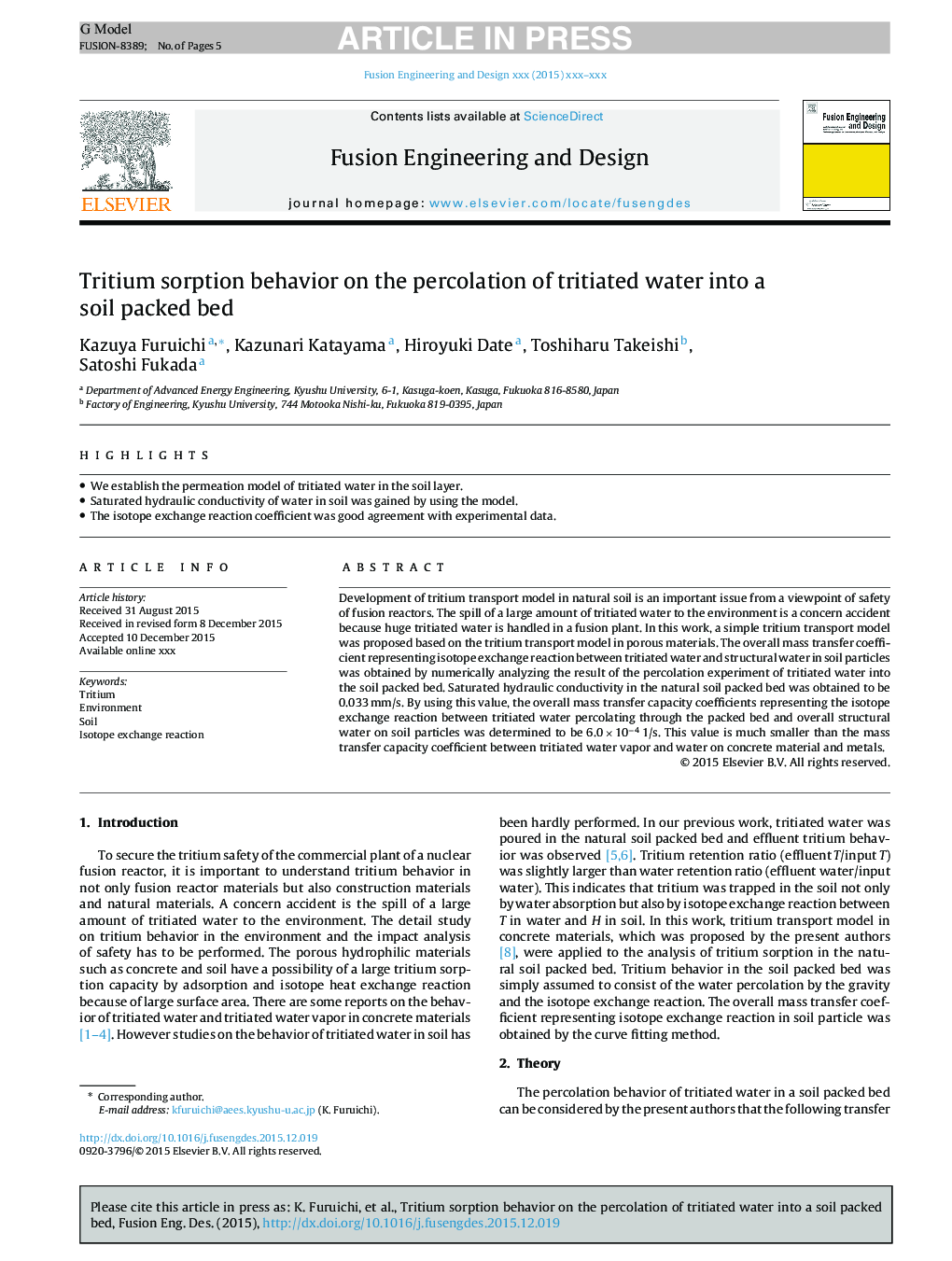| Article ID | Journal | Published Year | Pages | File Type |
|---|---|---|---|---|
| 4921350 | Fusion Engineering and Design | 2016 | 5 Pages |
Abstract
Development of tritium transport model in natural soil is an important issue from a viewpoint of safety of fusion reactors. The spill of a large amount of tritiated water to the environment is a concern accident because huge tritiated water is handled in a fusion plant. In this work, a simple tritium transport model was proposed based on the tritium transport model in porous materials. The overall mass transfer coefficient representing isotope exchange reaction between tritiated water and structural water in soil particles was obtained by numerically analyzing the result of the percolation experiment of tritiated water into the soil packed bed. Saturated hydraulic conductivity in the natural soil packed bed was obtained to be 0.033Â mm/s. By using this value, the overall mass transfer capacity coefficients representing the isotope exchange reaction between tritiated water percolating through the packed bed and overall structural water on soil particles was determined to be 6.0Â ÃÂ 10â4Â 1/s. This value is much smaller than the mass transfer capacity coefficient between tritiated water vapor and water on concrete material and metals.
Related Topics
Physical Sciences and Engineering
Energy
Energy Engineering and Power Technology
Authors
Kazuya Furuichi, Kazunari Katayama, Hiroyuki Date, Toshiharu Takeishi, Satoshi Fukada,
